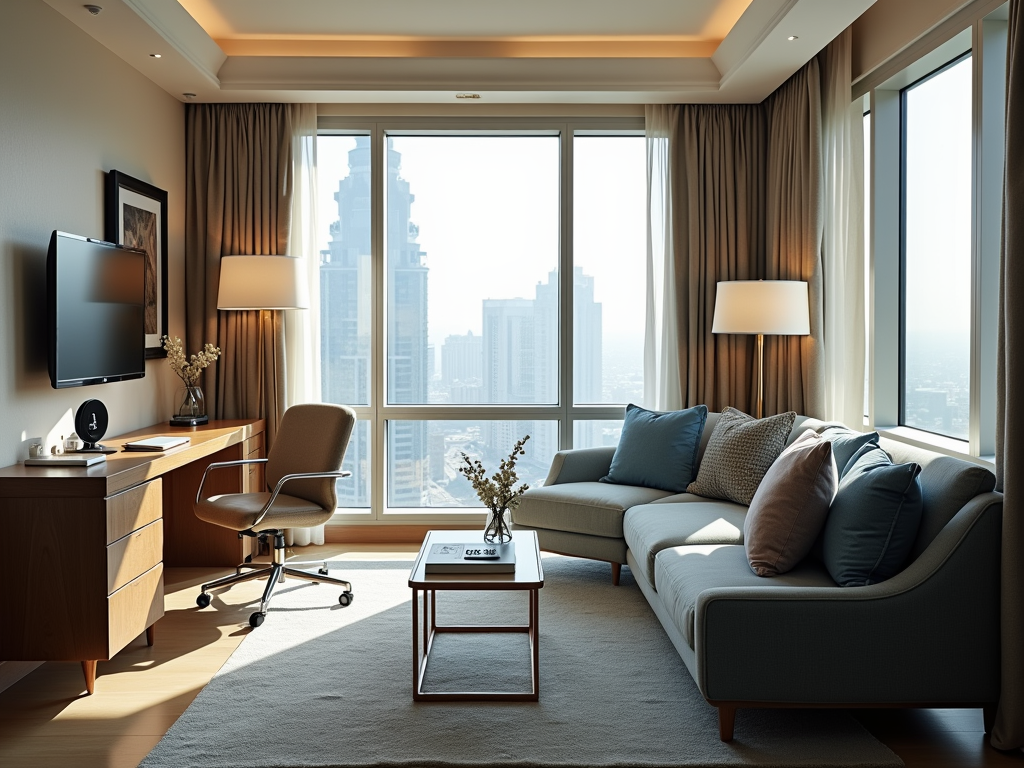Opening a boutique hotel for remote workers in Dubai is a promising venture, tapping into a flourishing market of individuals seeking comfortable yet unique accommodations away from home. As the trend of remote work continues to grow, so does the demand for tailored hospitality options that prioritize functionality, comfort, and connectivity. In this article, we will explore key steps, essential amenities, and marketing strategies needed to successfully establish a boutique hotel that caters specifically to remote workers in the vibrant city of Dubai.
1. Conduct Market Research

Before embarking on your journey to open a boutique hotel, conducting thorough market research is essential. Understand the current trends in remote work and identify your target demographic. Consider the following points during your research:
- Identifying the preferred location (Downtown Dubai, Dubai Marina, etc.)
- Analyzing competitors and their offerings
- Assessing pricing strategies
- Recognizing the amenities favored by remote workers
- Exploring seasonal trends in visitor numbers
Through comprehensive research, you’ll gain insights into customer needs and preferences, enabling you to design a hotel that stands out in Dubai’s competitive landscape. Understanding your audience will not only help you in tailoring your services but also in making sound financial decisions. This will also inform decisions related to branding and marketing efforts.
2. Determine Your Unique Selling Proposition (USP)

With countless hotels and accommodations in Dubai, developing a unique selling proposition (USP) for your boutique hotel is critical. The USP should resonate with remote workers and highlight what sets your hotel apart. Some ideas for potential USPs include:
- High-speed internet and tech-friendly workspaces
- Wellness amenities, such as yoga classes and spa services
- A creative design aesthetic to inspire productivity
- A community vibe with opportunities for networking
- Sustainable practices and eco-friendly accommodations
Having a clear USP allows you to effectively market your hotel and connect with your target audience. Make sure it is displayed prominently in your branding, promotional materials, and online presence. A compelling USP can give your hotel a competitive edge, making it an attractive choice for remote workers from around the world.
3. Location and Design
Choosing the right location and design for your boutique hotel is fundamental to your success. Look for areas that are popular with remote workers that offer a mix of work and leisure options. Factors to consider include:
- Proximity to co-working spaces and cafes
- Access to public transport and major tourist attractions
- Amply sized rooms that allow for work setups
- Aesthetic charm that aligns with your market positioning
- Facilities like meeting rooms or quiet zones for focused work
Once you’ve identified the right location, invest in a captivating design that merges comfort with functionality. The layout should facilitate a productive environment while also incorporating relaxing elements that appeal to leisure-oriented guests. Guest rooms should be equipped with ergonomic furnishings and workspace options to ensure a perfect balance between work and relaxation.
4. Facilities and Services Designed for Remote Workers
Offering facilities and services specifically designed for remote workers is paramount for attracting and retaining guests. Here are key amenities that can make your boutique hotel appealing:
- High-speed Wi-Fi and dedicated workstations
- A fully equipped business center with printers and meeting rooms
- 24/7 reception and concierge services to assist guests at any hour
- Networking events or workshops for skill enhancement
- Cafés or dining options focused on healthy and convenient meals
Creating an environment that promotes productivity while also emphasizing comfort and community will enhance the guest experience, encouraging repeat visits and positive word-of-mouth. By prioritizing these amenities, you’ll build a loyal customer base of remote workers seeking a seamless blending of work and leisure.
5. Implement Marketing Strategies Targeting Remote Workers
To effectively market your boutique hotel to remote workers, develop targeted strategies that highlight the unique features of your offering. Utilize a combination of the following approaches:
- Create a user-friendly website with SEO-optimized content
- Engage on social media platforms like Instagram and LinkedIn
- Collaborate with influencers and bloggers within the digital nomad community
- Offer packages or discounts specifically for extended stays
- Initiate referral programs to incentivize guests to share their experiences
By implementing these marketing strategies, you will not only increase your visibility in a crowded market but also effectively communicate the value of your unique offerings. Consistent messaging that speaks directly to the needs and lifestyles of remote workers will build brand loyalty and attract repeat customers.
Conclusion
Opening a boutique hotel for remote workers in Dubai requires comprehensive planning, strategic marketing, and a deep understanding of the target audience. By conducting thorough market research, developing a unique selling proposition, selecting the ideal location, providing tailored amenities, and implementing effective marketing strategies, you can carve a niche in the hospitality industry that appeals to remote workers. As the demand for flexible and unique accommodations grows, your boutique hotel can thrive by prioritizing the needs of this segment, creating a welcoming environment that cultivates both productivity and leisure.
Frequently Asked Questions
1. What is a boutique hotel?
A boutique hotel is a smaller, independent hotel that typically offers personalized service, unique design, and a distinct atmosphere. They often cater to specific audiences, such as remote workers, to provide an experience that larger hotels may not offer.
2. How do I determine the right location for my boutique hotel in Dubai?
Choose locations near co-working spaces, public transport, and attractions. Analyze competitor locations and gather insights on community preferences to find an optimal spot.
3. What amenities are essential for attracting remote workers?
Key amenities include high-speed Wi-Fi, dedicated workspaces, business centers, wellness facilities, and options for networking or skill-building events.
4. How can I effectively market my boutique hotel to remote workers?
Utilize a user-friendly website, engage through social media, collaborate with influencers, and offer customized packages. Focus on addressing the specific needs of remote workers in your branding and promotions.
5. What challenges may arise when opening a boutique hotel?
Challenges include competition in the hospitality sector, understanding changing customer preferences, regulatory compliance, and ensuring consistent quality of services. Strategic planning and adaptability are key to overcoming these obstacles.


